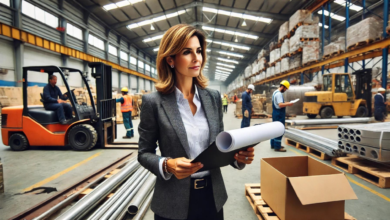Gravel vs. Bonded Resin Driveways: Complete Comparison Guide

Your driveway choice can transform your property’s value and curb appeal overnight.
Traditional gravel offers rustic charm but demands constant maintenance, while modern bonded resin driveways deliver stunning aesthetics with minimal upkeep.
These two popular options present significant differences in durability, appearance, and long-term costs that every homeowner must understand.
This comprehensive guide reveals the hidden pros and cons of each surface type, helping you avoid costly mistakes and choose the perfect driveway solution.
Discover which option delivers maximum return on investment while matching your lifestyle and design vision perfectly.
Differences Between Gravel vs. Bonded Resin Driveways
While both options provide attractive driveway solutions, they differ significantly in composition, installation methods, and long-term performance characteristics.
Material Composition
Traditional gravel driveways consist of loose aggregate stones in various sizes, from fine pea gravel to larger decorative stones. These materials remain unbound, creating a naturally permeable surface that shifts and settles over time.
Bonded resin driveways combine specially selected aggregates with high-quality polyurethane resin. The resin acts as a binding agent, creating either resin-bonded or bound resin driveways depending on the application method.
Resin-bonded surfaces involve scattering aggregate over a resin base, while resin-bound systems thoroughly mix aggregates with resin before application.
The aggregate selection for resin systems includes natural stones, pebbles, and gravels in diverse colors and textures. This variety allows homeowners to customize their driveway appearance while maintaining structural integrity through the resin binding process.
Installation
Gravel driveway installation requires excavating the area, laying a compacted sub-base, and spreading the chosen aggregate material.
Proper drainage considerations include installing French drains or land drains beneath the gravel surface. The process is relatively straightforward but requires ongoing maintenance to prevent stone migration.
Resin driveway installation demands professional expertise and precise timing. The base must be concrete or tarmac to provide stability.
For resin-bonded systems, contractors apply liquid resin to the prepared surface and scatter aggregate stones on top. Bound resin driveways require mixing aggregates with resin before troweling the mixture onto the base surface.
Installation timing is critical as resin can cure in two hours in hot temperatures or up to 24 hours in cold conditions. This rapid setting time necessitates skilled application to achieve uniform coverage without streaks or ripples.
Appearance
Gravel driveways offer a natural, rustic aesthetic with visible individual stones and organic texture variations. The appearance changes over time as stones shift, creating an evolving landscape that some homeowners appreciate for its informal charm.
Bonded resin driveways provide seamless, contemporary finishes with extensive design flexibility.
Resin-bound surfaces create smooth, uniform appearances resembling polished stone, while resin-bonded surfaces maintain visible aggregate texture similar to gravel but with stones firmly anchored.
Color options for resin systems are virtually unlimited, allowing homeowners to match existing architecture or create striking contrasts. The ability to blend different aggregate colors and sizes enables unique pattern creation impossible with traditional gravel surfaces.
Maintenance
Gravel driveways require regular raking and stone replenishment to maintain appearance and prevent bare patches.
Weed growth between stones necessitates periodic herbicide application or manual removal. Stone migration onto adjacent surfaces requires ongoing cleanup efforts.
Bonded resin driveways offer minimal maintenance requirements. Regular sweeping and occasional pressure washing maintain optimal appearance.
The bound surface prevents weed growth and eliminates loose stone displacement. Most household detergents are suitable for cleaning, and the surfaces resist moss and fungal growth.
Professional maintenance may be required every few years for specialized cleaning or minor repairs. However, daily upkeep is significantly reduced compared to traditional gravel surfaces.
Durability and Longevity
Gravel driveways can last indefinitely with proper maintenance, but require continuous stone replenishment and surface leveling. Freeze-thaw cycles, heavy traffic, and weather exposure cause gradual deterioration requiring ongoing attention.
Bound resin driveways typically last 15-25 years with proper installation and maintenance. Resin-bound systems offer superior longevity compared to resin-bonded surfaces, which generally last 8-15 years. The UV-stable polyurethane resin prevents fading and surface degradation.
Professional installation using quality materials can extend resin driveway lifespans beyond 25 years. The seamless surface prevents frost damage and impact resistance reduces dent formation, contributing to enhanced durability.
Drainage
Gravel driveways provide excellent natural drainage through the spaces between stones. However, underlying soil conditions can cause water pooling if the sub-base lacks proper permeability. Installing drainage systems beneath gravel surfaces addresses water accumulation issues.
Bonded resin driveways offer different drainage characteristics depending on the system type. Resin-bound surfaces are fully permeable, allowing water to drain through the entire surface. This makes them compliant with Sustainable Urban Drainage Systems (SUDS) regulations.
Resin-bonded surfaces allow water between aggregate stones but the resin base prevents full permeability. Additional drainage installation may be required for larger resin-bonded driveways to manage water runoff effectively.
Frequently Asked Questions
Which Type of Driveway Requires Less Maintenance?
Bound resin driveways require significantly less maintenance than gravel surfaces. While gravel needs regular raking, stone replenishment, and weed control, resin-bound systems need only periodic sweeping and occasional pressure washing.
How Long Do Bonded Resin Driveways Last Compared to Gravel?
Professionally installed bonded resin driveways last 15-25 years, depending on the system type, while gravel driveways require ongoing maintenance throughout their lifespan. Resin-bound systems offer the longest durability at up to 25 years.
Are Resin Driveways Better for Drainage Than Gravel?
Both options provide good drainage, but resin-bound systems offer superior water management with full surface permeability and SUDS compliance. Gravel driveways drain well but may experience water pooling depending on underlying soil conditions.
Can I Install a Bonded Resin Driveway Over Existing Gravel?
No, bonded resin driveways require stable concrete or tarmac bases for proper installation. Existing gravel surfaces must be excavated and replaced with appropriate sub-base materials before resin application.
Choose the Right Driveway for Your Needs
Selecting between gravel and bonded resin driveways depends on your priorities for appearance, maintenance, and longevity. Traditional gravel offers natural charm and lower initial costs but requires ongoing upkeep.
Bound resin driveways provide contemporary aesthetics, minimal maintenance, and superior durability with higher upfront investment.
Consider your lifestyle, budget, and design preferences when making this important decision for your property’s future.




